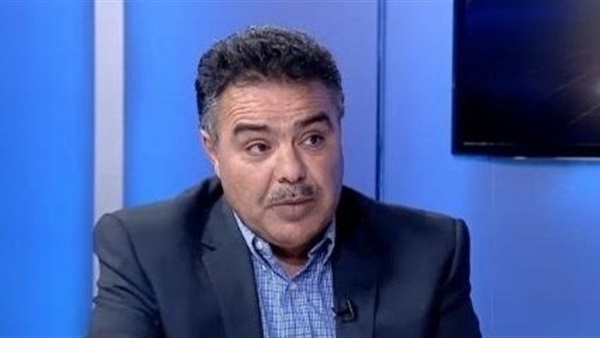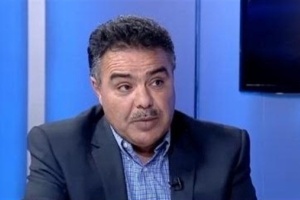By Abdullah Al-Kabir, a Libyan writer
The recycling of warlord

Things are not going well in American political circles for Haftar, it seems that his shares are in decline, and the US administration is no longer betting on him to take the helm in Libya, whether by armed force or through elections.
A strong indication of the validity of this hypothesis is the news published in last Thursday’s issue of the Wall Street Journal, where it stated that Haftar contracted with Lanny Dennis, aide to former US President Bill Clinton, and Bob Levinston, a former member of the House of Representatives, to promote and publicize him in the White House and other American institutions, adding that the first step of the duo, Dennis and Levinstone, in the project of recycling Haftar, is to remove the title of warlord that the American and Western press in general called Haftar on the eve of his failed attack on Tripoli in April 2019.
The value of the contract between the American duo and Haftar amounted to about one million dollars, and because money is the god that has no partner with Levinston and Dennis, the newspaper indicated that they justified their acceptance of the task despite the lawsuits filed against Haftar in American courts, on charges of war crimes and human rights violations, that Haftar’s advisors denied the charges and affirmed Haftar's innocence of these allegations, as if this denial is sufficient and there is no reason to wait for the court's ruling! Or even pay attention to the issue of the agreement of most newspapers to describe him as a warlord, or to read the reports of experts of the Security Council and human rights organizations, and the pleadings of the International Criminal Prosecutor before the Security Council.
Haftar did not need publicity and promotion with the American decision-maker during the past years, as successive administrations turned a blind eye to his crimes and violations, and did not seek to curb him by threatening to hold him accountable internationally, and the support reached its climax when former President Trump contacted him during his war on Tripoli, praising him for his security of the flow of oil and his war against terrorism, and the call was interpreted at the time as a green light for Haftar to proceed reassuringly in the invasion of Tripoli.
About a month before the move to contract with promoters in Washington, the US ambassador and special envoy to Libya, Richard Norland, summoned Haftar and met with him in Cairo, the meeting took place urgently on August 10, following a speech delivered by Haftar the day before, taking advantage of the anniversary of the founding of the Libyan army to announce that it would not submit to any authority, and that it would confront all conspiracies targeting his forces.
During this meeting, which took place late at night in Cairo, Norland expressed to Haftar his annoyance with what was stated in the speech, as it clashed with the international plan for a political solution in Libya, and that if he wanted to reach power, he had to present himself to the Libyans through elections to accept him or reject him and respect the choices of the people. “All roads to power are blocked except for elections”, this is the message of the American administration to Haftar after his military failure, and the situation worsened with the Russian incursion into Libya.
This development in the American position forced Haftar to appear on several occasions in civilian clothes, to promote himself in what resembled electoral festivals in cities and villages under his influence. But the matter requires moving in more than one direction by restoring American support by removing the image of the warlord from him through the Dennis and Livingstone company, and presenting him to the White House as a civilian leader ready to take off the military uniform, and give up the medals that his chest entailed to carry, and a potential candidate to win the Libyan elections.
Politically, Parliament Speaker Agilah Saleh initiated the issuance of the presidential election law, on conditions that allow Haftar to run in the elections, while maintaining his military position if he does not win, a law issued in violation of the road map, the Skhirat Agreement, the constitutional declaration and Security Council resolutions. Despite the international emphasis on holding the elections on the date set for them in the road map, Saleh's unilateral issuance of the presidential election law will further obstruct it, and UN envoy Jan Kubis will surely retract his cautiously welcome position after the law was rejected by the Supreme Council of State, and 22 deputies, emphasizing not to vote on it in Parliament after discussion. All attempts by Haftar and his ally Saleh will eventually reap failure.
No promotion in the White House will bear fruit, because the number of crimes and violations of international law over the years is greater than all counter-propaganda, reinforced by lawsuits before the American judiciary that his defense team was unable to refute. No politician will venture to support a war criminal whose fate is inevitable to stand before justice, and any elections that are uneven with all constitutional and security conditions will be rejected. The most that he can do is to further obstruct the political solution, and he has succeeded in this several times before, most recently by blowing up the National Forum with his sudden attack on Tripoli. Will he succeed this time too?
Disclaimer: The views and opinions expressed in this article are those of the writer, and do not necessarily reflect those of the Libya Observer


